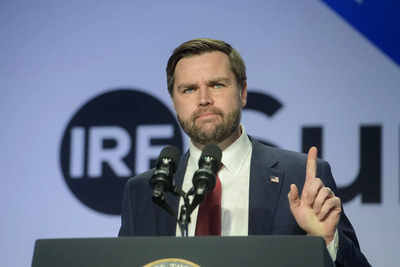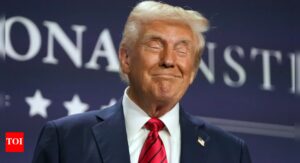JD Vance makes diplomatic debut: AI, NATO, and Trump’s global play

US Vice President JD Vance is stepping onto the global stage this week, marking his first major diplomatic outing with back-to-back summits in France and Germany. His message? A more assertive, business-driven approach to artificial intelligence and a push for NATO allies to take greater responsibility.
At the high-profile AI Summit in Paris, Vance is expected to challenge Europe’s push for tighter AI regulations, favoring an open-market approach aligned with Donald Trump’s vision of American tech dominance. His visit comes as France unveils a €109 billion AI investment plan, presenting itself as a leader in global AI development.
China, a key player in the AI race, is also present, with Vice Premier Zhang Guoqing attending. Beijing has criticized any attempts to limit AI access, calling for open-source collaboration.
Bilateral talks and global alliances
Vance is scheduled for private talks with Indian Prime Minister Narendra Modi and European Commission President Ursula von der Leyen on the sidelines of the summit. His discussions with Modi come as India strengthens its role in AI governance, co-hosting the summit with France to prevent AI dominance by the US and China.
After Paris, Vance will head to the Munich Security Conference, where his agenda will center on NATO, Ukraine, and European defense spending. His stance aligns with Trump’s repeated calls for NATO members to contribute more, a message that has raised concerns among European allies.
The trip also serves as an introduction for Vance to global leaders. “A lot of what I’ll be doing is behind closed doors,” he told Breitbart News, hinting at discussions that could influence the trajectory of AI policy and the war in Ukraine.
Macron’s AI stunt and the battle for tech dominance
In a provocative move ahead of the summit, French President Emmanuel Macron posted AI-generated deepfake videos of himself to spark debate on the risks and potential of artificial intelligence. Meanwhile, the US stance remains unclear on European-led AI governance initiatives, with Washington prioritizing market-driven growth over regulatory control.
With AI, national security, and geopolitical strategy in focus, Vance’s debut signals the contours of a Trump-era foreign policy that emphasizes technological leadership, economic leverage, and a recalibrated NATO alliance. Whether Europe embraces or resists this approach remains to be seen.





